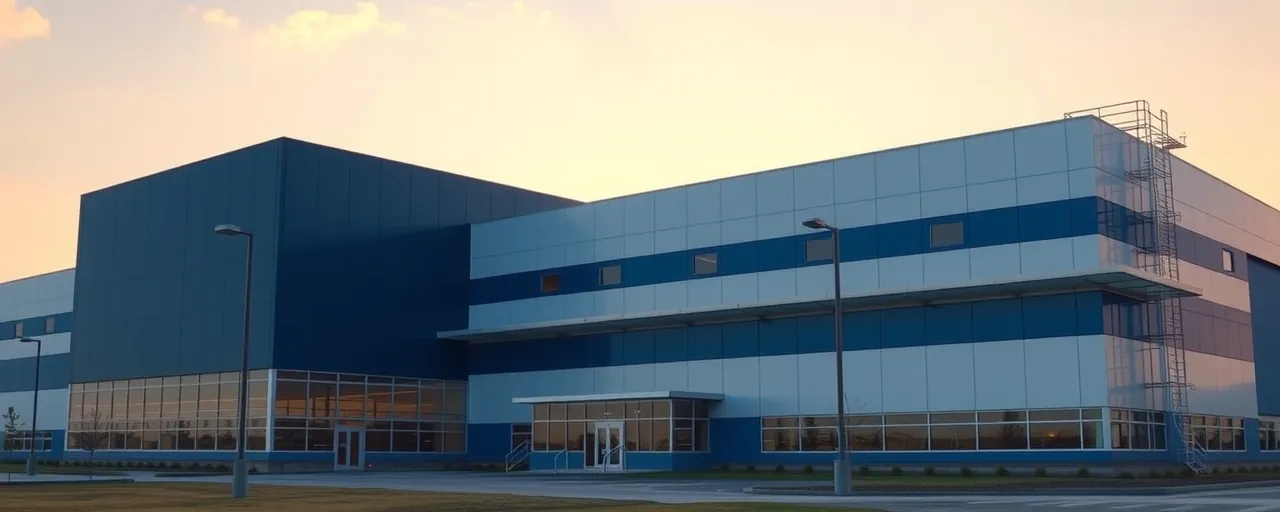A Surge of Opportunity in Columbus
Columbus, Ohio, hummed with energy as U.S. Secretary of Labor Lori Chavez-DeRemer joined corporate leaders to unveil major investments. Anheuser-Busch and McDonald’s announced plans to strengthen manufacturing, create jobs, and expand workforce training. These commitments reflect a growing trend of companies investing in American workers, especially in Midwest states eager to rebuild their economic foundations.
The announcements come at a time when national leaders aim to tackle a $1.2 trillion trade deficit and revive industries like manufacturing. For Ohio workers, who’ve faced years of job losses in factories, these initiatives spark hope. At the same time, they prompt questions about how corporate and government policies will shape long-term job quality and economic fairness.
Anheuser-Busch Powers Up Manufacturing
Anheuser-Busch led the charge with a $300 million investment under its Brewing Futures initiative. The highlight is a new Technical Excellence Center in Columbus, set to train workers in cutting-edge manufacturing skills. Building on a program that has already trained 1,200 employees since 2022, this expansion aims to prepare more workers for high-tech roles in a competitive industry.
This investment fits into a larger manufacturing revival. Forecasts for 2025 predict a 4.2 percent rise in sector revenues, driven by federal incentives like the CHIPS Act and state tax breaks. Ohio has reaped $3 billion in new payroll from auto and battery plants. However, some experts note that without strong labor protections, these jobs may not offer the stability or wages workers need.
McDonald’s Builds Pathways for Workers
At a McDonald’s in Lewis Center, the company celebrated ten years of its Archways to Opportunity program. This initiative has provided $240 million in tuition assistance to 90,000 restaurant workers, helping them earn high school diplomas or college degrees. Alongside this milestone, McDonald’s committed to hiring up to 375,000 workers this summer, expanding its nearly 800,000-strong workforce.
Investing in employee education is paying off across industries. A 2024 LinkedIn study found that companies with training programs saw 24 percent higher profit margins. McDonald’s program shows how such efforts can uplift workers and businesses alike. Yet, some voices argue that without broader wage hikes or union rights, these benefits may not fully address the challenges faced by low-wage workers.
Unions Weigh In on Policy Shifts
Chavez-DeRemer’s visit included a stop at the Central Midwest Regional Council of Carpenters’ facility, where she met with building trades and first responder unions. Their discussion covered recent executive orders on artificial intelligence and apprenticeships, alongside deregulation policies aimed at boosting economic growth. With 2,300 apprentices in Ohio, the carpenters’ union emphasized the importance of practical training programs.
Deregulation is a hot topic. The National Association of Manufacturers reports that recent regulatory cuts have saved businesses $90 billion yearly, spurring investment and lending. On the other hand, some warn that reduced oversight might weaken workplace safety or favor industries like fossil fuels, potentially widening economic gaps. The unions’ input underscores the need to balance growth with worker protections.
Navigating a Complex Economic Landscape
These efforts are part of a broader push to transform the U.S. economy. Corporate investments, backed by government incentives, are driving a manufacturing rebound, with factory job growth projected at 0.8 percent for 2025. The Department of Labor’s $8 billion Career Training Fund and $335 million for apprenticeships aim to equip workers for these roles. States like Michigan and California are also innovating, connecting education to industry demands.
Perspectives on the best path forward vary. Advocates for robust labor standards stress the need for living wages and support for groups like women or formerly incarcerated workers. Supporters of deregulation and tax cuts argue that easing business burdens drives job creation. Both sides recognize that effective workforce training is key to sustaining economic progress.
The Road Ahead for Ohio’s Workers
For Columbus residents, the commitments from Anheuser-Busch and McDonald’s bring real possibilities. A new training center, summer jobs, and tuition support could transform lives. But these steps are only part of a larger effort. Their success hinges on meeting workers’ needs, not just corporate goals.
Ohio’s experience mirrors national challenges, from closing skill gaps to narrowing trade deficits. Investments in people, whether through company programs or public policies, lay the groundwork for growth. Ensuring these efforts are equitable requires careful oversight and collaboration.
The journey is complex, but Columbus shows what’s possible when businesses, workers, and policymakers align. Progress begins with tangible actions, and Ohio’s workers are at the heart of this evolving story.
